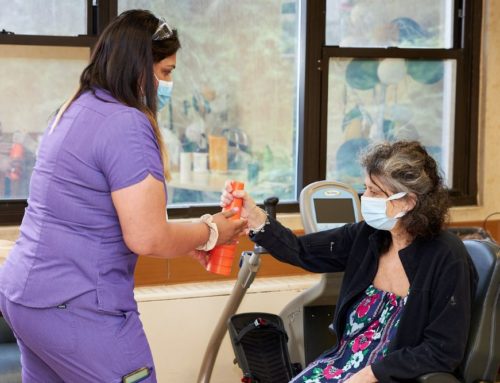The Power of Mental Health Habits for Dementia
Dementia causes individuals to lose their functions and skills over time. Though incurable, some medical treatments may slow the progression of the symptoms. One treatment is most efficient when used regularly. Changing your daily mental health habits is an effective treatment for dementia, requiring minimal support to improve your lifestyle.
Being diagnosed with a neurological disease, like dementia, is frightening due to its progressive nature. These conditions cripple lives, causing healthy individuals to lose their motor functions, memories, and independence. Though you can’t stop the development, following your doctor’s instructions can help to slow the progression.
Mental Health Habits for Dementia
A dementia diagnosis contributes to several mental health issues, including anxiety, depression, and stress. Finding daily activities to keep you calm, relaxed, and positive helps combat such problems. These improve your outlook and distract you from your diagnosis in the early stages while the condition is still manageable. Your family and friends should get on board as well to offer support.

Build Quiet Times
Quiet times are highly beneficial for people with dementia because they help to reduce overstimulation. As these people can get easily overwhelmed by too much noise and activity, it is crucial for them to stay calm. They also help to avoid anxiety and depression.
Most people have heard the saying: Music has charms to soothe a savage beast. Though dementia patients are rarely considered savage, music similarly calms them. Singing or listening to relaxing music affects emotional and behavioral issues in people with dementia. The more soothing the music, the quicker anxiety and depression are reduced, making it an effective mental health habit for dementia.
Music also has added benefits since it improves other functions. These include speech, memory, and cognition, especially when associated with past events. The more often you listen to thought- and memory-provoking music, the slower you lose those functions. In some individuals, music may even reduce hospital visits and medication use.
Relaxation techniques, including yoga, meditation, and breathing exercises, are also effective habits for mental health and dementia. They calm the body and the mind, allowing you to let those worries go.
Daily happy habits
Establishing daily happy habits for someone with dementia can greatly enhance their quality of life. This is another way to keep your mood elevated when dealing with dementia is using daily happy and mental health habits. There are several ways to do this, depending on what you like to spend your time on. Hobbies, social interaction with those you love. For some, exercise helps improve overall health while releasing endorphins to boost your mood. As blood circulation improves, so do oxygen levels in the body, slowing the progression of dementia symptoms.
Recreational activities
When diagnosed with dementia, people often focus on what they’re losing. What they fail to remember is that there are several activities they can still participate in. They can even add activities to learn new skills and brighten their outlook.
Fun activities, like creative writing, painting, crafts, crocheting, gardening, dancing, and cooking, are all fantastic options. As well as offering hours of entertainment, these activities boost cognition and memory. Some of these are even available in group sessions, so you can join with friends or meet new ones. The earlier you start your new habits and activities for your mental health, the more effective this treatment will be for early dementia symptoms.
Resources:
https://www.mayoclinic.org/diseases-conditions/dementia/diagnosis-treatment/drc-20352019
https://www.agespace.org/dementia-music-benefits
https://www.ncbi.nlm.nih.gov/pmc/articles/PMC5687304/
This article is for educational and informational purpose only and does not substitute for professional medical advice. For any questions about your own health condition, speak to a qualified physician or healthcare provider.







Leave A Comment